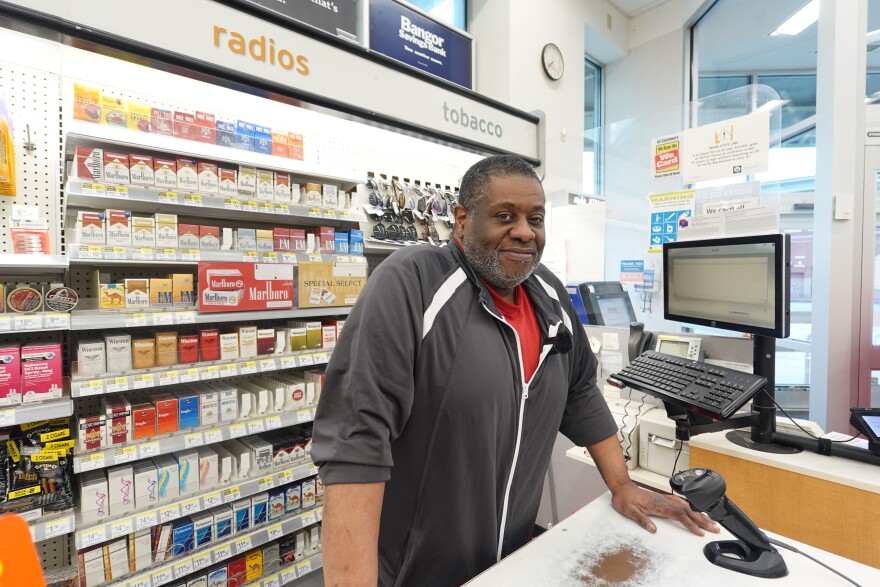Janice Walker, 83, arrives at work at Birch Rock summer camp on a cloudy July morning. She heads down to the camp dining hall to start on her first task of the day: folding all the cloth napkins that will be used at lunch. Later she will tend to the flower beds, fold more napkins and help the kitchen get ready for dinner.
She’s been working at this camp overlooking McWain Pond in Waterford for nearly 40 years, and she doesn’t see herself retiring anytime soon.
“I like it here, and I don't want to just sit home and do nothing,” she says. “It’s just being around people.”
But beyond the social aspect, the job also serves as a critical source of income on top of her Social Security check. She says without both, she wouldn’t be able to have the autonomy she enjoys.
“I still drive, I still live alone. [Working here] helps pay my taxes, and it helps pay my insurance. I wouldn't be here if I didn't have Social Security, and I wouldn't be able to live by myself,” Walker says.
And she isn’t alone. Jess Maurer, executive director of the Maine Council on Aging, says older Mainers’ participation in the workforce has significantly increased in the past 20 years. She says for many, working later in life is necessary to combat the inadequacy of Social Security benefits and pension options. And she says living alone is even more difficult for older women.
“Social Security masks poverty in Maine,” Maurer says. “Women who live alone are much more likely to live at 150% of the federal poverty level or lower. And at least half of the 75,000 women in Maine who live alone don't have enough money to meet their basic needs.”
According to the 2025 Healthy Aging Data report 18.84% of Mainers over the age of 65 are employed — and 9.03% of Mainers over the age of 65 are living below the poverty line.

Inside the Birch Rock kitchen, 67-year-old Gloria McKee cuts vegetables for lunch. After retiring from her job in TSA in 2019, she quickly realized she needed a part-time job to have any disposable income.
“Social Security checks don't go far enough when you want the extras,” she says.
In Portland, Seon Browne works as a cashier at Walgreens. At 60 years old, he still has a few years left before he can decide whether to retire. When asked what keeps him in the workforce, Browne says, “a need for survival, a need to make ends meet, to try to pay some bills, even though I'm way behind. I do my best to work hard and succeed.”
Browne says he doesn’t want to be stuck in a nine-to-five job forever, and he never sees himself retiring fully. He has dreams of going back to school and eventually opening a food truck, but he says for now he has to focus on the present.

Walker says she plans to work at Birch Rock for as long as she can. She says it's the place she feels the happiest — but it's also a lifeline to her continued independence.
“I just like it here,” she says. “My daughter always worries about me, but she says ‘I don’t have to worry about you in the summertime because I know you’re at camp.’”



